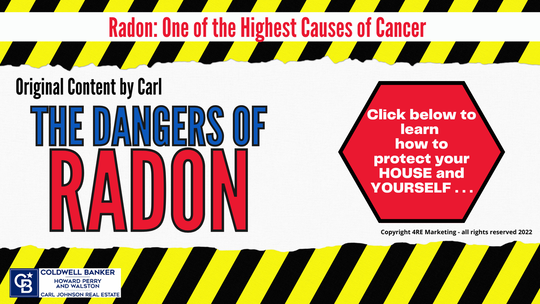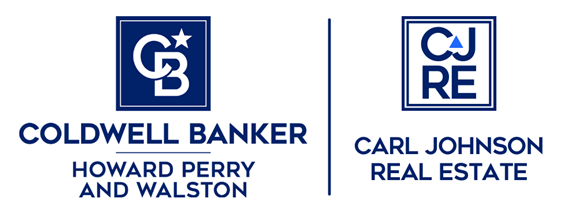Dangers of Radon: EPA Recommendations
Original Content by Carl Johnson
Change in Radon Remediation, Now between 2-4 pCi/L
Did you know that the EPA changed the recommendation to remediate Radon on November 29, 2021? They now recommend that if levels are between 2 - 4 pCi/L and up that you take actions to remediate the radon! Previously it was if levels were 4 and up. Radon is measured in “picocuries per liter of air,” or “pCi/L.”
This comes as a surprise to many as the recommendation changed from 4 to 2 pCi/L recently. It may be just as surprising to learn that next to cigarette smoking, radon exposure is the second leading cause of lung cancer in the United States (www.cancer.gov). Luckily there are easy to take steps to test and remediate radon to help ensure the safety of yourself and your family in your home!
Radon is a naturally occurring radioactive gas that is found in trace amounts in our atmosphere. As a homeowner, knowledge about radon is essential to ensure your health and well-being. Outdoors, radon disperses on its own, but can become trapped inside homes and buildings, where it can accumulate to dangerous levels. Radon can get into homes through openings and cracks in foundations. If radon gets to a dangerous level, it can cause lung cancer. It’s estimated that thousands of Americans a year have lung cancer associated with exposure to radon (ww.epa.gov). Home properties with private water wells may want to also consider radon testing for the water. Municipal water levels get tested regularly per their regulations but there have been reported issues of radon in private wells in North Carolina (HPW Advice Regarding Radon Document).
Thankfully, there are effective and relatively simple ways to test for radon levels in homes and buildings. Once radon levels reach a concerning level (between levels 2 and 4 pCi/L), treatment and remediation options are widely available. The options for testing radon include home test kits or hiring a certified radon tester to come to your home. The NC Radon Program highly recommends hiring someone to take care of testing for you. Three organizations which list certified testers are as follows:
National Radon Proficiency Program
National Radon Safety Board
Inspector Nation
DIY home tests are also available to order online. There are both short-term and long-term tests. For more accurate results regarding the levels of radon in your home over time, choose the long-term test. If your time is limited, do a short-term test. However, if the short-term test reveals levels 2-4pCi/L, you will also need to follow up with a long-term test. Find your DIY Radon home test here:
Accustar - https://www.accustarlabs.com
Air Chek - http://www.radon.com/radon_airchek/
Dr. Home Air - https://www.doctorhomeair.com/radontest/
Pro Lab - http://www.prolabinc.com/radon-test-kits.html
RTCA - http://www.rtca.com/shop.asp
RSSI - http://rssi.us/sunshop/index.php?l=product_detail&p=1
When it is determined that radon levels are potentially dangerous (level 2 pCi/L and up), remediation should be administered in the home/building. Remediation simply means reducing the levels of radon. Depending on the structure, there are different ways radon reduction can be accomplished. Sealing cracks and openings may help to prevent radon from coming in, especially through foundations and basement floors. Sometimes a special exhaust system is installed to help radon disperse from the home to reduce levels. Special skills and training are needed to remediate for radon. The average cost is about $1200 and up, though it can be more or less depending on what is necessary in the home. An experienced contractor should be hired to evaluate and make adjustments to your home to address radon levels. Today two national organizations certify radon professionals:
For further information on Radon and Radon Home Remediation, take a look at:
The Environmental Protection Agency:
https://www.epa.gov/sites/default/files/2016-12/documents/2016_a_citizens_guide_to_radon.pdf
The North Carolina Radon Program:
http://www.ncradon.org/Home.html
Did you know we are hiring? Click here to read more about opportunities at Carl Johnson Real Estate!
Change in Radon Remediation, Now between 2-4 pCi/L
Did you know that the EPA changed the recommendation to remediate Radon on November 29, 2021? They now recommend that if levels are between 2 - 4 pCi/L and up that you take actions to remediate the radon! Previously it was if levels were 4 and up. Radon is measured in “picocuries per liter of air,” or “pCi/L.”
This comes as a surprise to many as the recommendation changed from 4 to 2 pCi/L recently. It may be just as surprising to learn that next to cigarette smoking, radon exposure is the second leading cause of lung cancer in the United States (www.cancer.gov). Luckily there are easy to take steps to test and remediate radon to help ensure the safety of yourself and your family in your home!
Radon is a naturally occurring radioactive gas that is found in trace amounts in our atmosphere. As a homeowner, knowledge about radon is essential to ensure your health and well-being. Outdoors, radon disperses on its own, but can become trapped inside homes and buildings, where it can accumulate to dangerous levels. Radon can get into homes through openings and cracks in foundations. If radon gets to a dangerous level, it can cause lung cancer. It’s estimated that thousands of Americans a year have lung cancer associated with exposure to radon (ww.epa.gov). Home properties with private water wells may want to also consider radon testing for the water. Municipal water levels get tested regularly per their regulations but there have been reported issues of radon in private wells in North Carolina (HPW Advice Regarding Radon Document).
Thankfully, there are effective and relatively simple ways to test for radon levels in homes and buildings. Once radon levels reach a concerning level (between levels 2 and 4 pCi/L), treatment and remediation options are widely available. The options for testing radon include home test kits or hiring a certified radon tester to come to your home. The NC Radon Program highly recommends hiring someone to take care of testing for you. Three organizations which list certified testers are as follows:
National Radon Proficiency Program
National Radon Safety Board
Inspector Nation
DIY home tests are also available to order online. There are both short-term and long-term tests. For more accurate results regarding the levels of radon in your home over time, choose the long-term test. If your time is limited, do a short-term test. However, if the short-term test reveals levels 2-4pCi/L, you will also need to follow up with a long-term test. Find your DIY Radon home test here:
Accustar - https://www.accustarlabs.com
Air Chek - http://www.radon.com/radon_airchek/
Dr. Home Air - https://www.doctorhomeair.com/radontest/
Pro Lab - http://www.prolabinc.com/radon-test-kits.html
RTCA - http://www.rtca.com/shop.asp
RSSI - http://rssi.us/sunshop/index.php?l=product_detail&p=1
When it is determined that radon levels are potentially dangerous (level 2 pCi/L and up), remediation should be administered in the home/building. Remediation simply means reducing the levels of radon. Depending on the structure, there are different ways radon reduction can be accomplished. Sealing cracks and openings may help to prevent radon from coming in, especially through foundations and basement floors. Sometimes a special exhaust system is installed to help radon disperse from the home to reduce levels. Special skills and training are needed to remediate for radon. The average cost is about $1200 and up, though it can be more or less depending on what is necessary in the home. An experienced contractor should be hired to evaluate and make adjustments to your home to address radon levels. Today two national organizations certify radon professionals:
- •National Radon Proficiency Program - Find nationally certified radon measurement and mitigation professionals in your area.
- •National Radon Safety Board - Find nationally certified radon measurement and mitigation professionals in your area.
For further information on Radon and Radon Home Remediation, take a look at:
The Environmental Protection Agency:
https://www.epa.gov/sites/default/files/2016-12/documents/2016_a_citizens_guide_to_radon.pdf
The North Carolina Radon Program:
http://www.ncradon.org/Home.html
Did you know we are hiring? Click here to read more about opportunities at Carl Johnson Real Estate!

